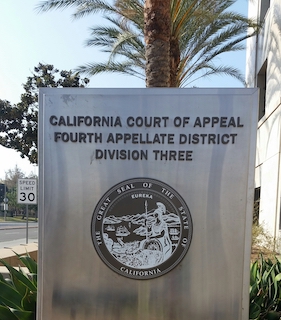The Sixth Amendment of the U.S. Constitution guarantees all criminal “the right to a speedy and public trial.” Despite this guarantee, however, the Sixth Amendment does not state any length of time within which a criminal trial must commence.
To give effect to this Sixth Amendment right, Congress enacted the Speedy Trial Act, which sets specified time limits after arraignment or indictment within which criminal trials must commence. Pub. L. No. 93-619, 88 Stat. 2076 (1975); see Furlow v. United States (9th Cir., 1981) 644 F.2d 764, 768-769 (describing the Speedy Trial Act as the Sixth Amendment’s “implementation”).
The Speedy Trial Act requires that a criminal trial begin within seventy days from the date on which the indictment was filed, or the date on which the defendant makes an initial appearance, whichever occurs later. 18 U.S. C. § 3161.
However, recognizing the need for flexibility depending on the circumstances of each case, the Speedy Trial Act “includes a long and detailed list of periods of delay that are excluded in computing the time within which trial must start.” Zedner v. United States (2006) 547 U.S. 489, 497; see 18 U.S.C. § 3161(h). For example, a court may exclude periods of delay resulting from competency examinations, interlocutory appeals, pretrial motions, the unavailability of essential witnesses, and delays to which the defendant agrees. 18 U.S.C. § 3161(h).
The Speedy Trial Act also includes an ends of justice provision, allowing the exclusion of time as well when a district court finds “that the ends of justice served by taking such action outweigh the best interest of the public and the defendant in a speedy trial.” 18 U.S.C. § 3161(h)(7)(A). In determining whether the ends of justice outweigh the best interest of the public and the defendant in a speedy trial, the district court must evaluate, “among others,” several enumerated factors. 18 U.S.C. § 3161(h)(7)(B)(i)-(iv).
One of such factors is “whether the failure to grant such a continuance in the proceedings would be likely to make a continuation of such proceedings impossible, or result in a miscarriage of justice.”
It is against this law that in March 2020, the Central District of California suspended all jury trials in light of the COVID-19 pandemic. Prior to this, in July 2017, Defendant Jeffrey Olsen, a California licensed physician, was indicted on 34 counts related to the unlawful distribution of opioids, including oxycodone, amphetamine salts, alprazolam, and hydrocodone in violation of 21 U.S.C. § 841(a)(1), (b)(1)(C), (b)(1) and (b)(2).
According to the government, Olsen was aware that two of his patients had overdosed of prescription drug overdoses, while he continued prescribing dangerous combinations and unnecessary amounts of opioids to his patients. After his indictment, he remained on pretrial release and obtained eight continuances of his trial date.
After the Central District suspended all jury trials, the government requested a continuance of Olsen’s trial under 18 U.S.C. § 3161(h)(7)(A), the Speedy Trial Act’s “ends of justice” provision. Judge Cormac J. Carney denied the request and, ultimately, dismissed the charges against Olsen with prejudice, concluding that continuances under the ends of justice provision are appropriate only if holding a criminal jury trial would be impossible. Here, Carney determined that it would not be impossible to hold a trial, so the continuance request was denied.
The U.S. Attorney’s office filed its appeal in the U.S. Court of Appeals for the Ninth Circuit in San Francisco. The Ninth Circuit began its analysis by noting that its standard of review was de novo and explained that a district court’s ruling would be reversed only if it was found clearly erroneous. United States v. Murillo (9th Cir., 2002) 288 F.3d 1126, 1133.
The Ninth Circuit then ruled that Judge Carney had made a clearly erroneous ruling, explaining that it appeared he only considered whether it was physically impossible to hold a trial, but nothing in the act limits district court to granting ends of justice continuances only when holding jury trials is impossible.
The Ninth Circuit described Judge Carney’s ruling as clear error by reading the word “impossible” in isolation. Judge Carney had overlooked the rest of the provision which requires courts to ask whether the district court’s failure to apply an ends of justice continuance “would . . . result in a miscarriage of justice.”
We present this short article as an example of how the federal right to a speedy trial is applied.
The citation for the U.S. Ninth Circuit Court of Appeals ruling discussed above is United States v. Jeffrey Olsen (9th Cir., 2021) 995 F. 3d 683.
For more information about speedy trial issues in state court, please click on the following articles:
 Court of Appeals 4th District Div 3 Orange County
Court of Appeals 4th District Div 3 Orange County